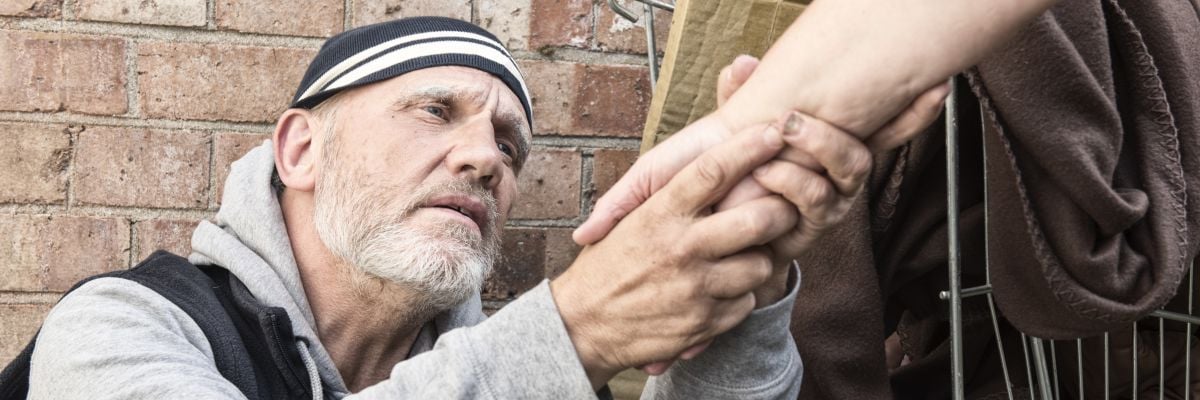
Homily for the Seventh Sunday in Ordinary Time, Year C
Jesus said to his disciples:
“To you who hear I say,
love your enemies, do good to those who hate you,
bless those who curse you, pray for those who mistreat you.
To the person who strikes you on one cheek,
offer the other one as well,
and from the person who takes your cloak,
do not withhold even your tunic.
Give to everyone who asks of you,
and from the one who takes what is yours do not demand it back.
Do to others as you would have them do to you.
For if you love those who love you,
what credit is that to you?
Even sinners love those who love them.
And if you do good to those who do good to you,
what credit is that to you?
Even sinners do the same.
If you lend money to those from whom you expect repayment,
what credit is that to you?
Even sinners lend to sinners,
and get back the same amount.
But rather, love your enemies and do good to them,
and lend expecting nothing back;
then your reward will be great
and you will be children of the Most High,
for he himself is kind to the ungrateful and the wicked.
Be merciful, just as your Father is merciful.“Stop judging and you will not be judged.
Stop condemning and you will not be condemned.
Forgive and you will be forgiven.
Give, and gifts will be given to you;
a good measure, packed together, shaken down, and overflowing,
will be poured into your lap.
For the measure with which you measure
will in return be measured out to you.”
-Luke 6:27-38
In these weeks preceding Lent, the Roman liturgy presents the narration of creation from Genesis. In the older form, Genesis is read at Matins in the Divine Office, and in the current form, Genesis is read at Holy Mass on the weekdays. After all, we are getting ready for that time of renewal and reparation that helps to bring us back, at least to some extent, to the blessed and peaceful life our first parents had before their fall from grace.
What was this peaceful life before the Fall? The text of Genesis tells us: we were made in God’s image and likeness. Sin caused the disfigurement of this divine image. Getting back to Eden, then, means to be restored to that image and likeness.
When we understand what the Fall meant, what its consequences were for men and women made in God’s very image, such a restoration must seem like an immense undertaking. After all, we would have to overcome mortality and corruptibility, irrationality and immoderate passion, and ignorance and darkening of our intellect.
Now all of this is the decidedly negative side of our current, fallen state, and all of these things very difficult indeed to overcome. But the Gospel lesson for today provides us with a much more hopeful perspective to complete the picture. After all, the Savior came to save us in the first place from the losses that occurred because of original sin, so there must be some way in which we can, relatively easily and universally, lay hold of this salvation from death and our vices. He bore the heavy burden of the cross, and we must bear ours.
But what is our burden? It is simply the love of our neighbor. There is no way in our behavior whereby we become more like God’s than when give good things to our fellow creatures. For then, we are like God who poured out his goodness in creating and longs for us imitate him in doing the same. “A new commandment I give you” the Savior says, “love one another as I have loved you.”
How so? By living and acting and imitating the God in whose image and likeness we are made. He has already borne the weight of our sins and paid the price of our salvation. It is up to us, being restored to his image by faith and baptism, to become like him with regard to our fellow creatures.
Do you want to be restored to God’s image? To act as he does? To be like him? Then here is how:
Love your enemies, do good to those who hate you,
bless those who curse you, pray for those who mistreat you.
To the person who strikes you on one cheek,
offer the other one as well,
and from the person who takes your cloak,
do not withhold even your tunic.
Give to everyone who asks of you,
and from the one who takes what is yours do not demand it back.
For the Lord is the Lord of love and compassion, and even though we may have offended him repeatedly,
He himself is kind to the ungrateful and the wicked.
Be merciful, just as your Father is merciful.
How are we made in God’s image? By sharing the goodness that is in us with those around us. It’s that simple. The outstretched hands of the wounded Savior on the wood of the cross teach us this.
We may have offended God over and over again, we may have bad habits of sin that we can barely overcome, but even with this burden we are told today that we can be restored to God’s likeness:
“Stop judging and you will not be judged.
Stop condemning and you will not be condemned.
Forgive and you will be forgiven.
Give, and gifts will be given to you;
a good measure, packed together, shaken down, and overflowing,
will be poured into your lap.
For the measure with which you measure
will in return be measured out to you.”
It is really that easy. If we are as disposed to forgive others as Jesus is always disposed to forgive us, we can be healed and restored and our sins will not be held against us. Let us hasten to be pardoned in the sacrament of penance and to ready ourselves for the works of mercy in our upcoming Lent, and then we will find that by Easter we will have re-found Eden!



